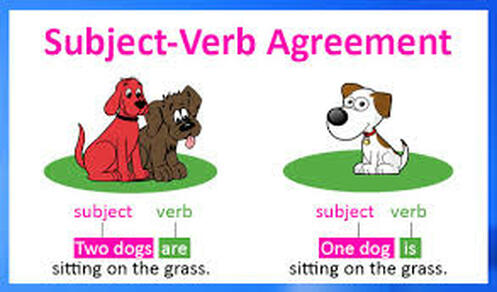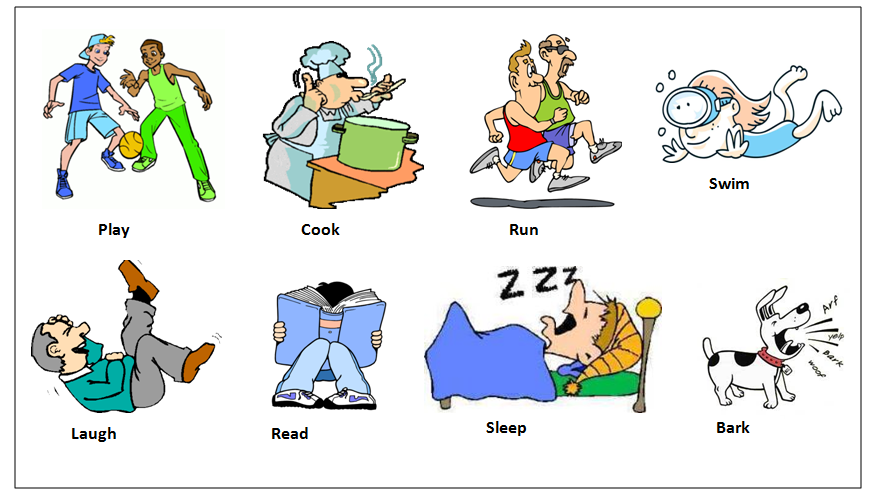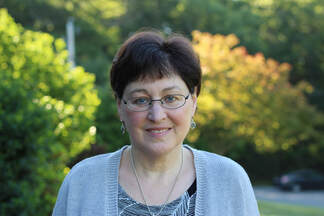 In the song Bohemian Rhapsody, Freddie Mercury croons about a desire to find "somebody to love." Because SOMEBODY is one of the INDEFINITE PRONOUNS, this spoonful is dedicated to Freddie's memory! INDEFINITE PRONOUNS are members of the pronoun family and can also act as SUBJECTS. But determining which are SINGULAR and which are PLURAL can stump the most seasoned grammarian. To help clear the confusion, here's a handy-dandy list: ALWAYS SINGULAR each, one, either, neither, another, little, much, anyone, anything, anybody, someone, something, somebody, everyone, everything, everybody, nothing, no one, nobody Words starting with EVERY refer to multiple people or things, but are always matched with singular verbs. Here are two examples: "Everyone is invited" and "Everything is packed up." ALWAYS PLURAL few, many, both, others, several SINGULAR OR PLURAL (depending on usage) all, any, enough, more, most, some, who, half, none In my next post, I'll provide examples from each grouping. Stay tuned! Sincerely, Laura Fineberg Cooper www.laurafcooper.com @spoonfulgrammar
1 Comment
 IT'S A MATCH! Subjects and verbs of the world unite! In each sentence, SUBJECTS are bold and matching VERBS are red. SINGULAR
PLURAL
SPECIAL NOTE: Subject-verb mis-matches are commonly found in the SAT Writing section!! Thanks for reading this spoonful. Until next time... Sincerely, Laura Fineberg Cooper laurafcooper.com @spoonfulgrammar  Honey in my reading chair. Honey in my reading chair. SUBJECT has many definitions. Here are just two:
In grammar, SUBJECT refers to the main topic or focus of every sentence. Its most important role is to instruct the VERB. If the SUBJECT is SINGULAR, the VERB must be SINGULAR. If the SUBJECT is PLURAL, the VERB must be PLURAL. This relationship is known as SUBJECT-VERB MATCHING. Sounds easy peasy? It's not, especially as sentences become increasingly complex. But don't fret: I'll cover this SUBJECT one spoonful at a time. In order to properly match SUBJECTS and VERBS, the first step is to determine whether the SUBJECT is SINGULAR or PLURAL. SINGULAR SUBJECTS with explanations:
PLURAL SUBJECTS with explanations:
Special Note: English grammar has exceptions to every rule. If you order a peanut butter AND jelly sandwich, you'll get ONE sandwich. I hope you enjoyed this spoonful! Please feel free to comment, ask questions, or share this with your friends. Sincerely, Laura Fineberg Cooper www.laurafcooper.com @spoonfulgrammar  Here's a short quiz: Which of the following must occur in every sentence? A.) Noun B.) Verb C.) Adjective D.) Adverb E.) Sugar and spice and everything nice. The answer is B.) VERB. Surprisingly, a verb is so powerful, it can even create a one word sentence like these: Run! Fly! Bark! Yodel! Exclamation points are optional. Verbs come in two basic forms. 1) Ready, set, ACTION VERBS: Each of the one word sentences above used strong action verbs. Action verbs make your heart pound and your legs move. Using action verbs makes sentences ACTIVE! 2) To be or not to be: the 8 FORMS OF TO BE are also considered verbs - IS, WAS, ARE, WERE, AM, BE, BEEN, BEING. These are super handy to use in sentences, especially IS, WAS, ARE, and WERE. But beware- they make sentences PASSIVE, the opposite of ACTIVE. For history papers, that's appropriate. But for creative writing (especially picture books), beware of overuse. That's a wrap! Thanks for reading "A Spoonful of Grammar." Laura Fineberg Cooper www.laurafcooper.com @spoonfulgrammar  Welcome to my new blog: A Spoonful of Grammar! My mission is to demystify tricky grammar, punctuation, and vocabulary in short, sweet, easily swallowed doses. To begin, I offer you a snappy refrain. Channel the wonderful Julie Andrews and sing to the tune of "A Spoonful of Sugar." A spoonful of grammar makes the predicates go down, the predicates go down, the predicates go down. A spoonful of grammar makes the predicates go down, in the most delightful way! Thank you for signing up! Please share this blog with your friends. Sincerely, Laura Fineberg Cooper Twitter: @spoonfulgrammar Website: laurafcooper.com |
Welcome to
|
 RSS Feed
RSS Feed
